
My maternal great-grandfather, Robert Galloway, was born at 54 Grassmarket, 1, Thomson’s Court, in Edinburgh, on 3 August 1860. His parents, Margaret and Alexander Galloway, had two daughters and three sons. With Alexander as the family’s only source of income, life was likely challenging.
In the mid-1800s, the Grassmarket was a bustling but run-down area of Edinburgh. Known for its livestock and goods markets, it was home to many Irish immigrants and poor families. Poverty, homelessness, and drunkenness were common due to the many lodging houses and new arrivals. The name came from the grass-filled pens where livestock were kept during the weekly Friday market. The Galloways’ tenement was later demolished and replaced with a modern block of flats.
According to the 1871 census, the family—Alexander, Margaret, William, Alexander, Margaret, Robert, and Alison—still lived in the Grassmarket. Two siblings, Joseph and Georgina, had passed away, and their older sister Maria had moved out. Life may have improved for the family since William worked as a joiner and Alexander was learning to be a cooper. Robert, Margaret, and Alison were attending school.
By 19, Robert was working as a stone mason, and the 1881 census shows he was still living in the Grassmarket at 21. There is no official record of his marriage, which may have been considered ‘irregular.’ In Scotland, marriage was based on mutual consent and did not require a religious ceremony. Marriage was viewed as a civil contract, but there was no established method to prove it. Registration became mandatory only in 1855, and many records from that time are either missing or incomplete.
Shortly after his father, Alexander, died in 1883, he likely moved to Pleasance and 15 East Arthur Street, where his son, Alexander Pender Galloway, was born to him and his wife, Georgina Gregory Galloway (Pender), on 3 April 1884. In 1896, the family moved to Carnegie Street, where their second child, Georgina, was born. Both Alexander and Georgina died within a year of each other. The family then lived at 160 Dumbiedykes Road, where three more children were born: Robert, Maria (who died at the age of 2), and Daniel.
In 1898, his mother, Margaret, passed away at the Royal Asylum on Morningside Road. Today, this hospital is called the Royal Edinburgh Hospital and is known for its long history of helping people with mental health issues.
He died at 3 Salisbury Street, having outlived five of his seven children, which is a hardship no parent wants to face. His son Robert was killed in Ypres in 1918, just three months before his own death on 7 April 1918.

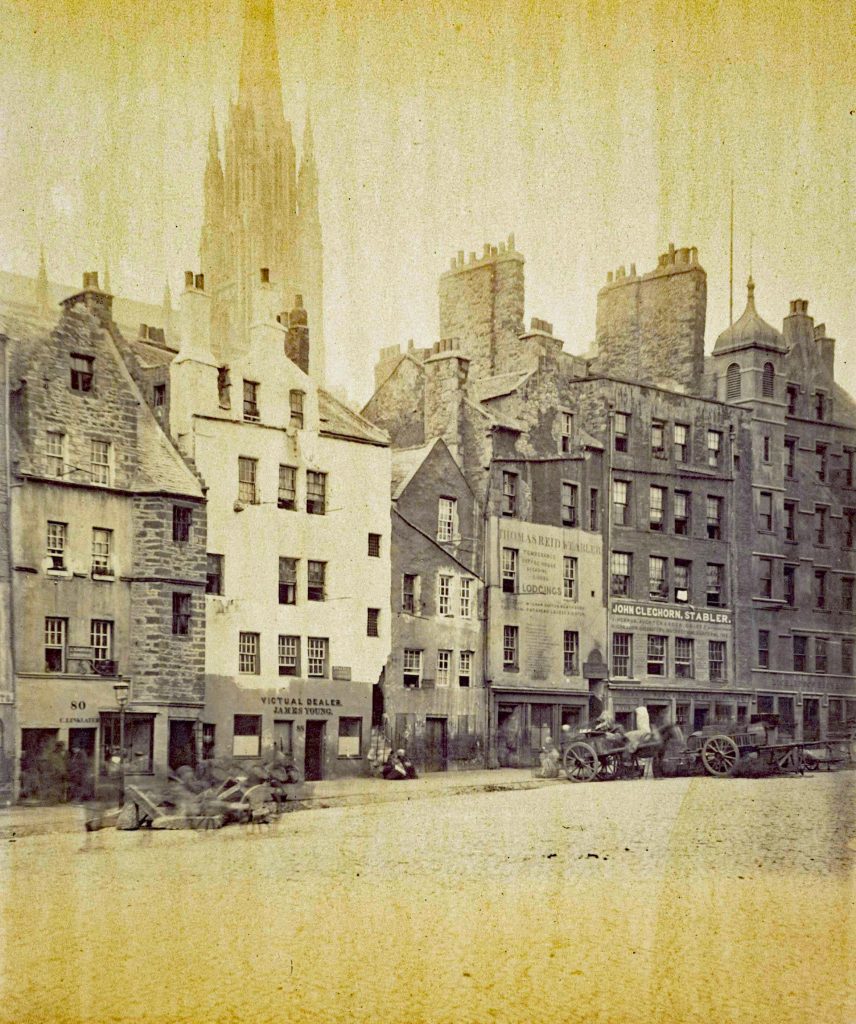
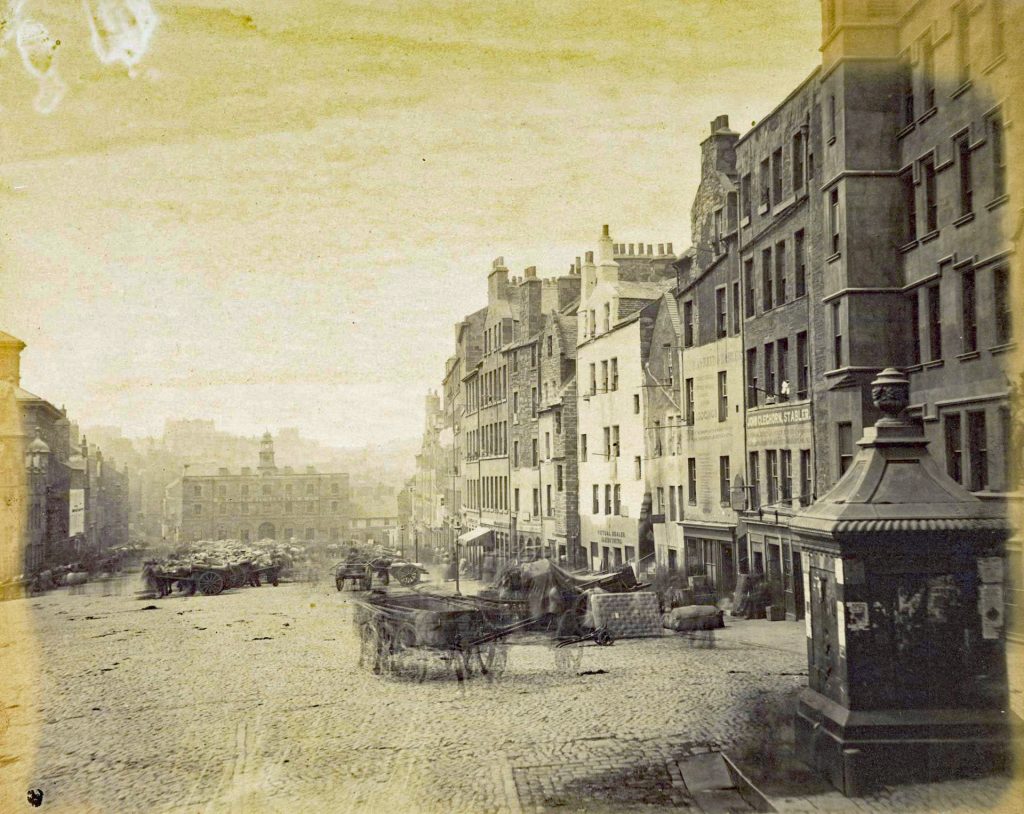
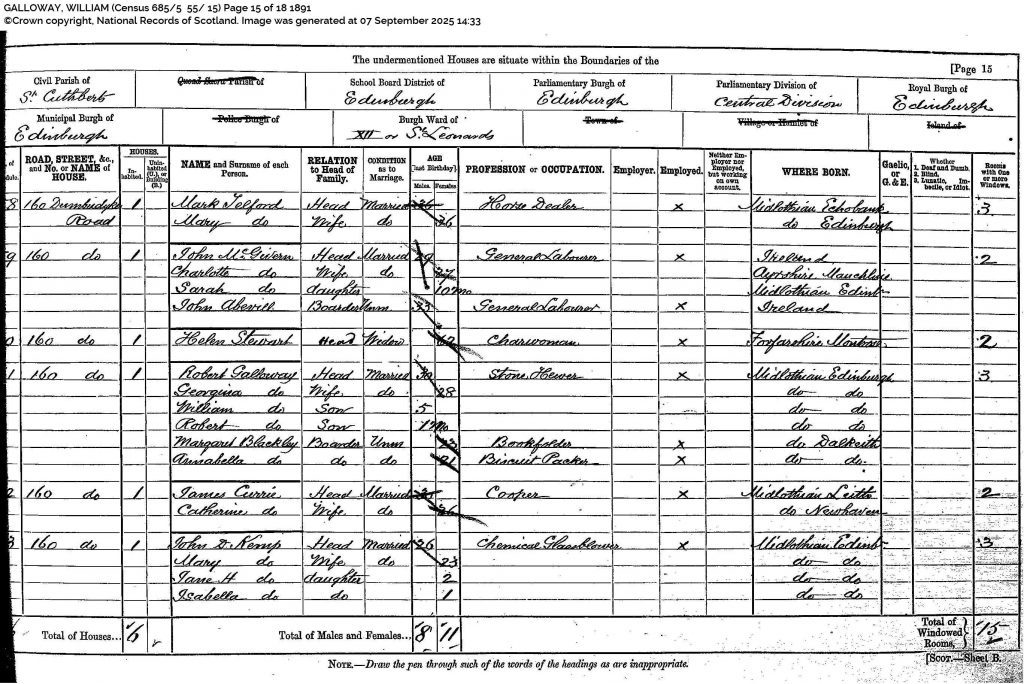
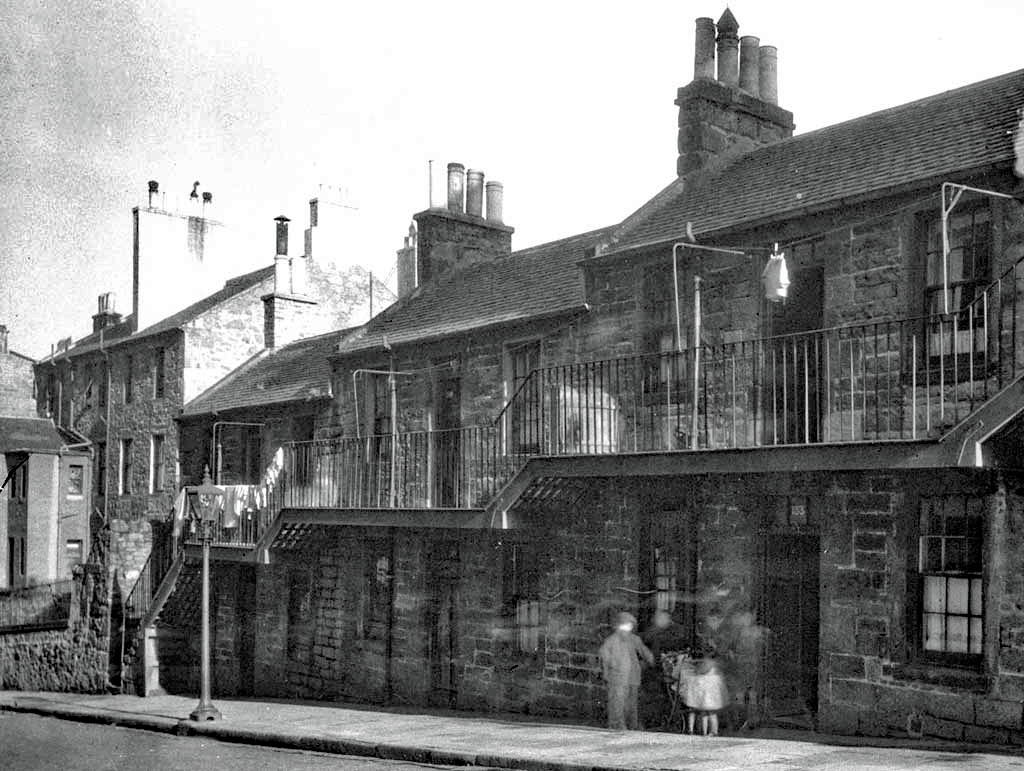
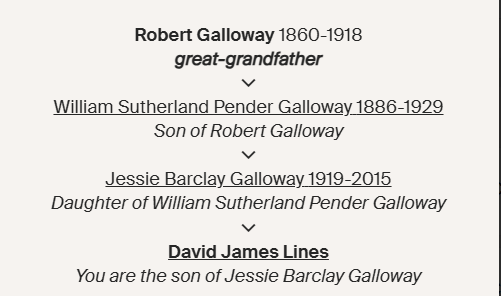
Comments are closed